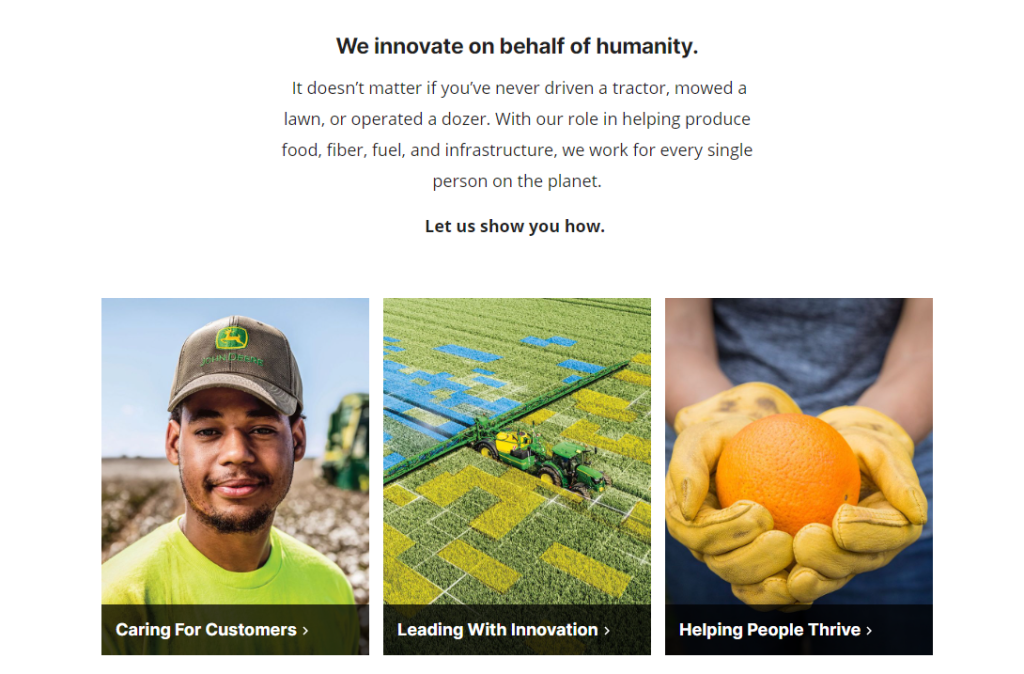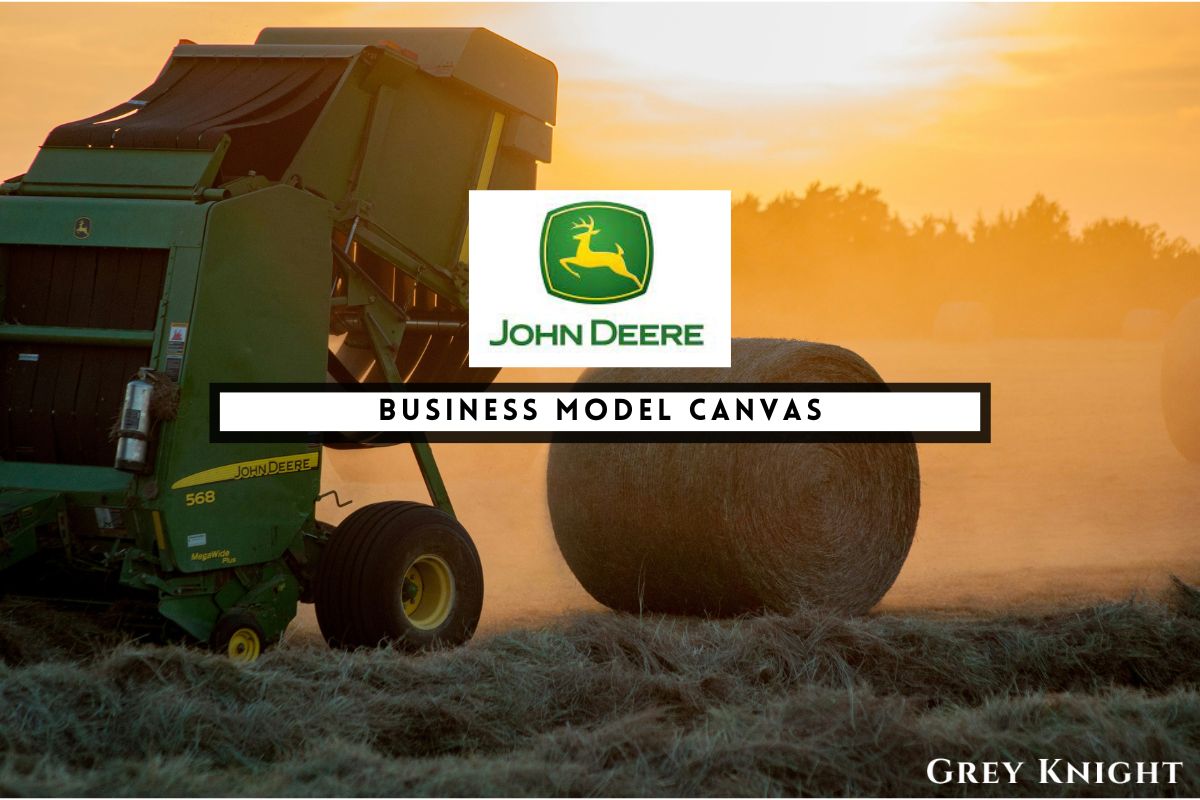Table of Contents
ToggleA Brief History of Deere
Deere & Company, also known as John Deere, is a leading manufacturer of agricultural machinery and equipment. The company was founded in 1837 by blacksmith and inventor John Deere in Grand Detour, Illinois. His revolutionary steel plow design, which allowed farmers to work the tough prairie soil with ease, quickly gained popularity and the company grew rapidly.
In the following decades, Deere & Company expanded its product line to include a wide range of farm equipment, such as tractors, harvesters, and plows, and also expanded its operations to include construction equipment. The company’s commitment to innovation and quality made it an industry leader in agricultural machinery.
Today, Deere & Company is a global business with a strong presence in the agricultural and construction industries. The company continues to develop and manufacture cutting-edge equipment and technology to help farmers and construction professionals work more efficiently and sustainably. With a commitment to quality, innovation, and customer service, Deere & Company remains a trusted name in the agriculture and construction sectors.
Who Owns Deere?
Deere & Company, commonly known as John Deere, is a well-known American corporation that manufactures agricultural, construction, and forestry machinery, as well as diesel engines and drivetrains. The company is publicly traded on the New York Stock Exchange under the ticker symbol DE. As such, ownership of Deere & Company is distributed among a wide range of institutional and individual investors. The top 10 shareholders of Deere & Company include The Vanguard Group, Inc., BlackRock, Inc., State Street Corporation, and T. Rowe Price Associates, Inc., among others. These institutions collectively hold a significant portion of the company’s outstanding shares and play a key role in the ownership and governance of Deere & Company.
Deere Mission Statement
Deere & Company’s mission is to deliver innovative products and services that improve the productivity and efficiency of customers in the agricultural, construction, and forestry industries. The company is dedicated to being a trusted partner to its customers, providing quality equipment and solutions, and driving sustainable growth for the benefit of all stakeholders. Deere & Company strives to create value through its commitment to excellence, integrity, and responsible environmental stewardship.
How Deere Makes Money?
Deere & Company’s business model revolves around the manufacturing and sale of agricultural and construction equipment, including tractors, combines, and excavators. The company generates its revenue through the sale of these products, as well as through the provision of related services, such as maintenance and repair. Additionally, Deere & Company generates income through the sale of spare parts and accessories for its equipment. The company also offers financing options to customers, which contributes to its revenue stream. Overall, Deere & Company’s business model is built around providing high-quality equipment and services to customers in the agricultural and construction industries, and generating revenue through sales, services, and financing.

Deere Business Model Canvas
The Business Model Canvas is a strategic management tool that provides a visual representation of a company’s business model. It consists of nine key building blocks that outline the key aspects of a business, including the customer segments, value propositions, channels, customer relationships, revenue streams, key resources, key activities, key partners, and cost structure. This tool helps businesses to analyze and visualize the key elements of their business and develop a strategic plan for achieving success.
Customer Segments:
1. Agricultural sector
2. Construction sector
3. Forestry sector
4. Landscaping sector
5. Homeowners and hobbyists
Value Propositions:
1. High-quality agricultural equipment
2. Innovative construction machinery
3. Efficient forestry machinery
4. Reliable landscaping equipment
5. Superior aftermarket support and services
Channels:
1. Direct sales through dealerships
2. Online sales platform
3. Rental services
4. Aftermarket support and services
Customer Relationships:
1. Personalized customer support
2. After-sales service and maintenance
3. Training and education programs
4. Online customer support
Revenue Streams:
1. Sales of equipment and machinery
2. Rental services
3. Aftermarket sales of parts and services
4. Financing and leasing
Key Resources:
1. Technologically advanced manufacturing facilities
2. Strong brand reputation
3. Research and development capabilities
4. Distribution network
5. Trained and skilled workforce
Key Activities:
1. Product design and development
2. Manufacturing and assembly
3. Sales and marketing
4. After-sales service and support
5. Research and development
Key Partners:
1. Dealerships and distributors
2. Suppliers of raw materials and components
3. Financial institutions for leasing and financing
4. Service and maintenance providers
Cost Structure:
1. Research and development expenses
2. Manufacturing and production costs
3. Marketing and sales expenses
4. After-sales support and services
5. Administrative and overhead costs
Deere & Company’s Competitors
Deere & Company operates in the agricultural and construction machinery industry, thereby facing competition from several companies. Its top five competitors include:
1. CNH Industrial
2. Caterpillar Inc.
3. AGCO Corporation
4. Kubota Corporation
5. Komatsu Ltd. These companies offer similar products and services, and compete with Deere & Company in the global market for heavy equipment and machinery.
Deere SWOT Anaylsis
Strengths:
1. Strong brand reputation and recognition
2. Diversified product portfolio in agriculture, construction, forestry, and turf care
3. Global presence and strong distribution network
4. Innovation in technology and precision farming
5. Strong financial performance and market position
Weaknesses:
1. Dependence on agricultural market fluctuations
2. High competition in the industry
3. Vulnerability to global economic and political instability
4. Limited presence in emerging markets
5. Product recalls and quality issues
Opportunities:
1. Growing demand for food and agricultural products
2. Expansion into new markets and segments
3. Increasing adoption of technology in agriculture
4. Strategic partnerships and acquisitions
5. Sustainable and environmentally-friendly farming solutions
Threats:
1. Fluctuating commodity prices and trade policies
2. Intense competition and price pressure
3. Regulatory and environmental challenges
4. Impact of climate change on agriculture
5. Economic downturns and market uncertainties.
Concluding Analysis
As an analyst, I am optimistic about the future of Deere & Company. With their continued focus on innovation, sustainability, and meeting the evolving needs of their customers, I believe that the company is well-positioned for success in the years to come. The robust business model that Deere & Company has developed, along with their commitment to service and quality, sets them apart in the industry. I look forward to seeing how they continue to grow and adapt in a rapidly changing business landscape, and I am confident in their ability to thrive in the future.
Additional Resources
To keep learning and advancing your career, we highly recommend these additional resources:
Business Model Canvas of The Top 1,000 Largest Companies by Market Cap in 2024
A List of 1000 Venture Capital Firms & Investors with LinkedIn Profiles
Peter Thiel and the 16 Unicorns: The Legacy of Thiel Fellowship












